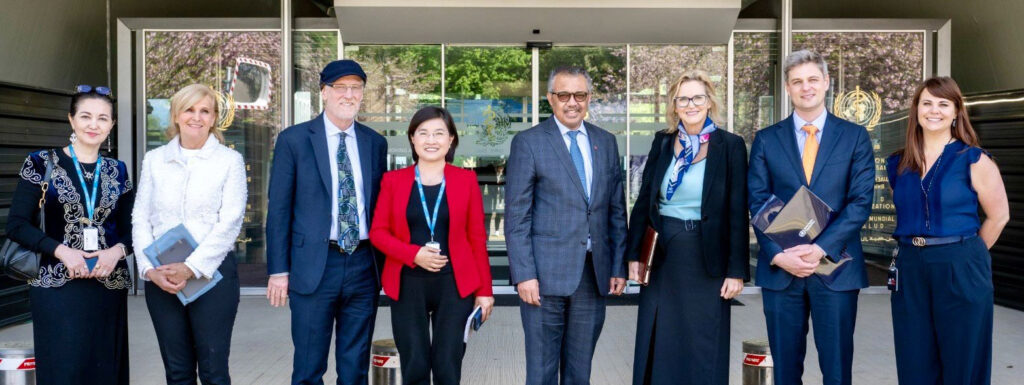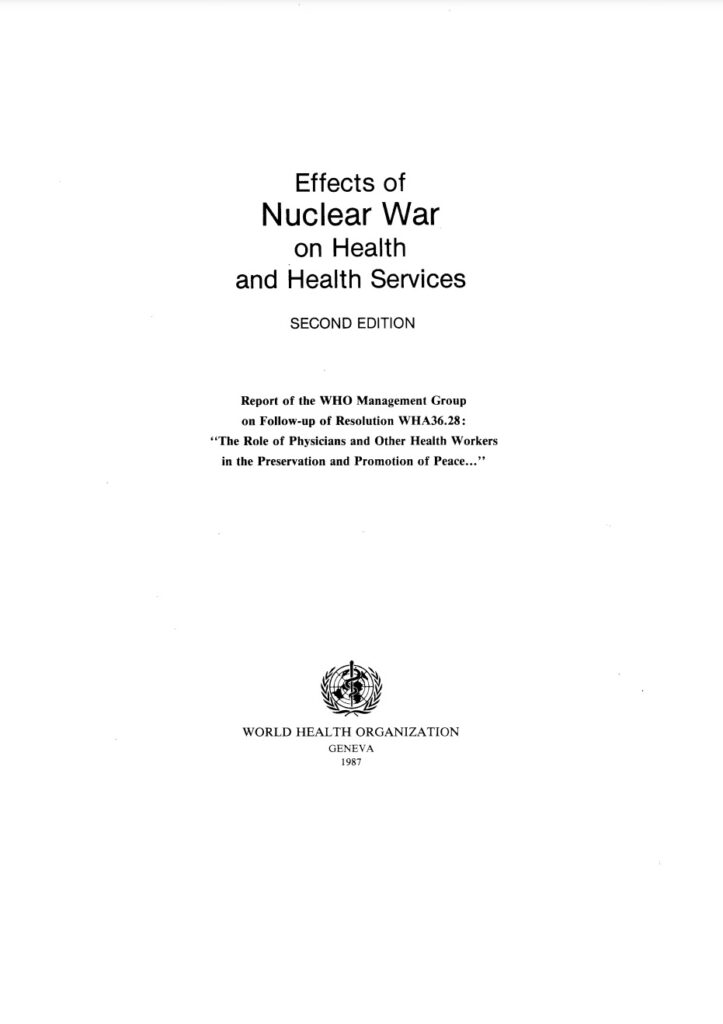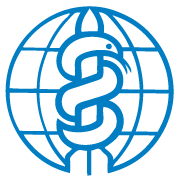
World Health Organization 1987 Report Update

WHO’s previous report has not been touched since 1987 and a new report has been needed for some time to include, among other things: extensive new computer modeling of the climatic, environmental, agricultural and nutritional effects of nuclear war; conclusions about the lack of capacity of emergency responders to assist victims of nuclear detonations, studies of health effects upon second generation survivors, and on ionizing radiation’s impact upon women, girls, and children; updating the status and risks of current nuclear arsenals; and, emphasizing the responsibility of health professionals in preventing nuclear war.
Updating this WHO baseline report now will be a clear message to the world that the nuclear weapons threat is not merely a historical concern, but a problem that health professionals prioritize and take seriously today.
“We cannot have peace without health and we cannot have health without peace.”
~Dr. Tedros Ghebreyesus
Global Health and Peace Initiative
IPPNW-GLO is collaborating with WHO’s Global Health and Peace Initiative (GHPI) and making the connection between peace and health – applying to conflicts involving nuclear weapon states. This initiative plants seeds for a long-term focus in the Geneva Office.
Health and peace are interrelated. 80% of WHO’s humanitarian caseload and 70% of disease outbreaks that WHO responds to, take place in fragile and conflict-affected situations. Armed conflict can lead to the disruption of health systems, the collapse of essential medical supply chains, an exodus of health care workers, attacks on health care and/or upsurges in epidemics and starvation – ultimately impacting lives and livelihoods.
WHO’s Global Health and Peace Initiative (GHPI) was launched by WHO in November 2019 to respond to this challenging global context.
— Excerpted from WHO website
Stay tuned for regular updates on progress with this initiative.
